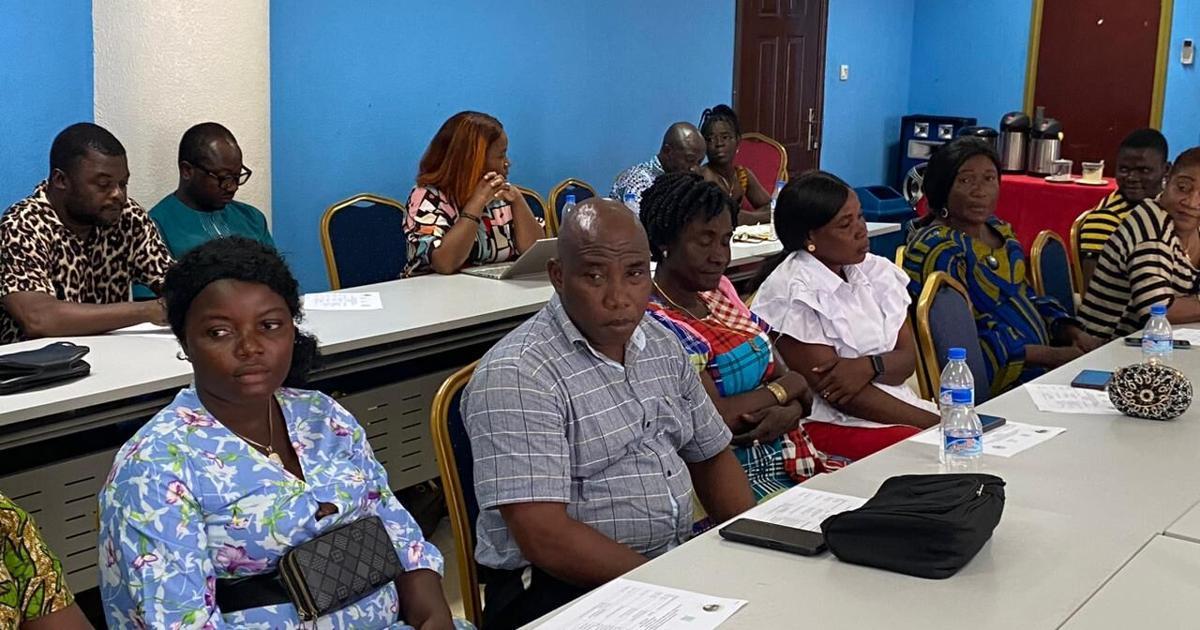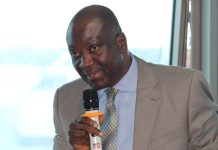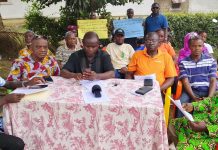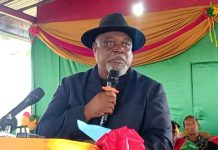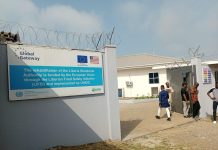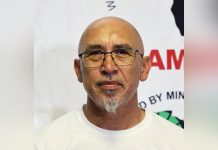Africa-Press – Liberia. In 2009, Annette Johnson mobilized her fellow artisanal fishmongers to speak against the illegal use of harmful chemicals in the New Kru Town Popo Beach. Her advocacy prompted the National Fisheries and Aquaculture Authority (NaaFA) to establish the Liberia Artisanal Fishermen Association, as well as the All FishNet Women, to monitor and report anyone using harmful chemicals to catch fish.
Johnson, who now heads the two advocacy groups, says their work has put them in harm’s way. They encounter intimidation, threats, and harassment from individuals using harmful chemicals in the sea.
“It’s risky and difficult,” she says. “We don’t walk freely in the community.”
Johnson’s experience is suffered by so many individuals on the frontline of defending the environment worldwide. Due to their advocacy, they often face threats from mining companies, and other elite multinational concession companies for speaking out against illegal fishing, pollution, land grabs, and degradation. Apart from threats, environmental Defenders face assaults and murders. Additionally, their work exposed them to stigmatization and criminalization. At least three people die a week protecting environmental rights, according to Global Witness.
In Liberia, Green Advocates recently launched a project titled, “Standing Together for Environmental Defenders” (STAND), an initiative to protect Grassroots Environmental Defenders (GEDs) in Liberia, Brazil, Guatemala, Mexico, the Democratic Republic of Congo, and Kenya.
Launched in five countries with five other groups, STAND will provide financial support, and training for Johnson and so many environmental defenders and civil society organizations facing the risks that Grassroots Environmental Defenders face with partnerships.
On Friday, May 24, 2024, Green Advocates hosted the first “Listening Session” with environmental defenders. The purpose of the meeting was to hear from the defenders their challenges, and their engagement with using the rule of law.
Francis Colee, Green Advocates’ Head of Programs and Acting Executive Director, said environmental defenders are often harassed for standing up for their communities. “We are talking about indigenous communities who depend heavily on agriculture, fishery, and farming,” he said.
According to him, these people were denied access to their ancestral lands and suffered expansion from large mining, and forestry companies. “People and their families have faced all kinds of security risks. They are criminalized, they are stigmatized. So, when grassroots environmental defenders try to express their grievances, they are harassed, and then they are even called all kinds of names.”
Bah-Wah Brownell, Director of Program Planning, Internal Monitoring and Evaluation at Liberia’s Independent National Commission on Human Rights (INCHR) pledged the commission’s full support to work with grassroots environmental defenders.
“This is the reason why the Human Rights Commission is pleased and honored to collaborate with human rights organizations in organizing the CSO human rights platform. We will be working with Green Advocates so that your solution can be amplified.”
The project is led by The World Resources Institute (WRI) and the Alliance for Indigenous, Land, and Environmental Defenders, (ALLIED), a global network of civil society, donors, and defenders that drives multi-stakeholder action and systemic change for the recognition, support, and protection of GEDs, and funded by the U.S. State Department.
Peter Quaqua, project lead, said the STAND initiative will expand available resources and strengthen the ability of environmental defenders to access legal mechanisms and participate in environmental decision-making processes.
“We acknowledge the vital role GEDs play in protecting the environment and their communities, their positive impact and needs for protection have been formally recognized by the United Nations Human Rights Council (UNHRC) and many international regionally binding multilateral agreements,” he said.
Quaqua added that even with the recognition from UNHRC and other bodies, grassroots environmental defenders’ rights and roles are yet to be recognized by state and non-state actors.
“In Liberia, the economic, social, cultural, environmental, land, and indigenous rights of defenders continue to face high risks as a consequence of their work. Our country is home to diverse indigenous communities with deep connections to their ancestral lands. However, these lands are often threatened by logging, mining, agricultural expansion, and environmental degradation.”
Quaqua added that the plight of environmental defenders and indigenous communities is the same because they are exposed to harsh conditions and brutality perpetrated by companies with support from state security.
“Sadly, the Government of Liberia appears to only be keen on protecting investors but cares less about the sufferings and violations citizens face daily. GEDs have been forcefully uprooted from their ancestral lands and livelihoods with impunity, leaving many to scramble for survival,” he said.
STAND’s goal is to contribute to the reduction of attacks against GEDs, particularly those in underserved communities and locations while securing stronger and meaningful commitment by the government and private sector to address GED attacks.
It will improve GEDs’ capacities to hold government and private actors accountable for compliance and enforcement of environmental laws, including increasing GED participation in environmental decision-making forums and using governance mechanisms.
To create a demand-driven Capacity Building and Training Program, Green Advocates on Friday commenced a series of listening sessions across the country with local grassroots defenders (GEDs) and support organizations, particularly those in underserved communities. The training needs assessment aims to generate information on the specific type of technical assistance to be provided over the next three years of the project.
For More News And Analysis About Liberia Follow Africa-Press

